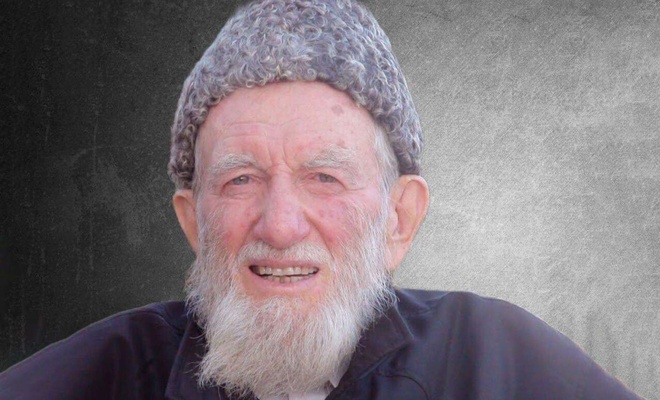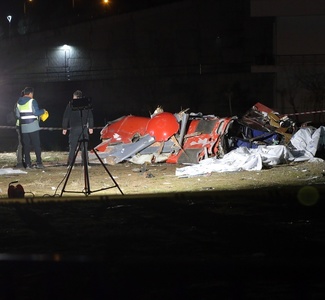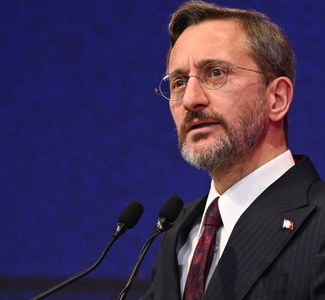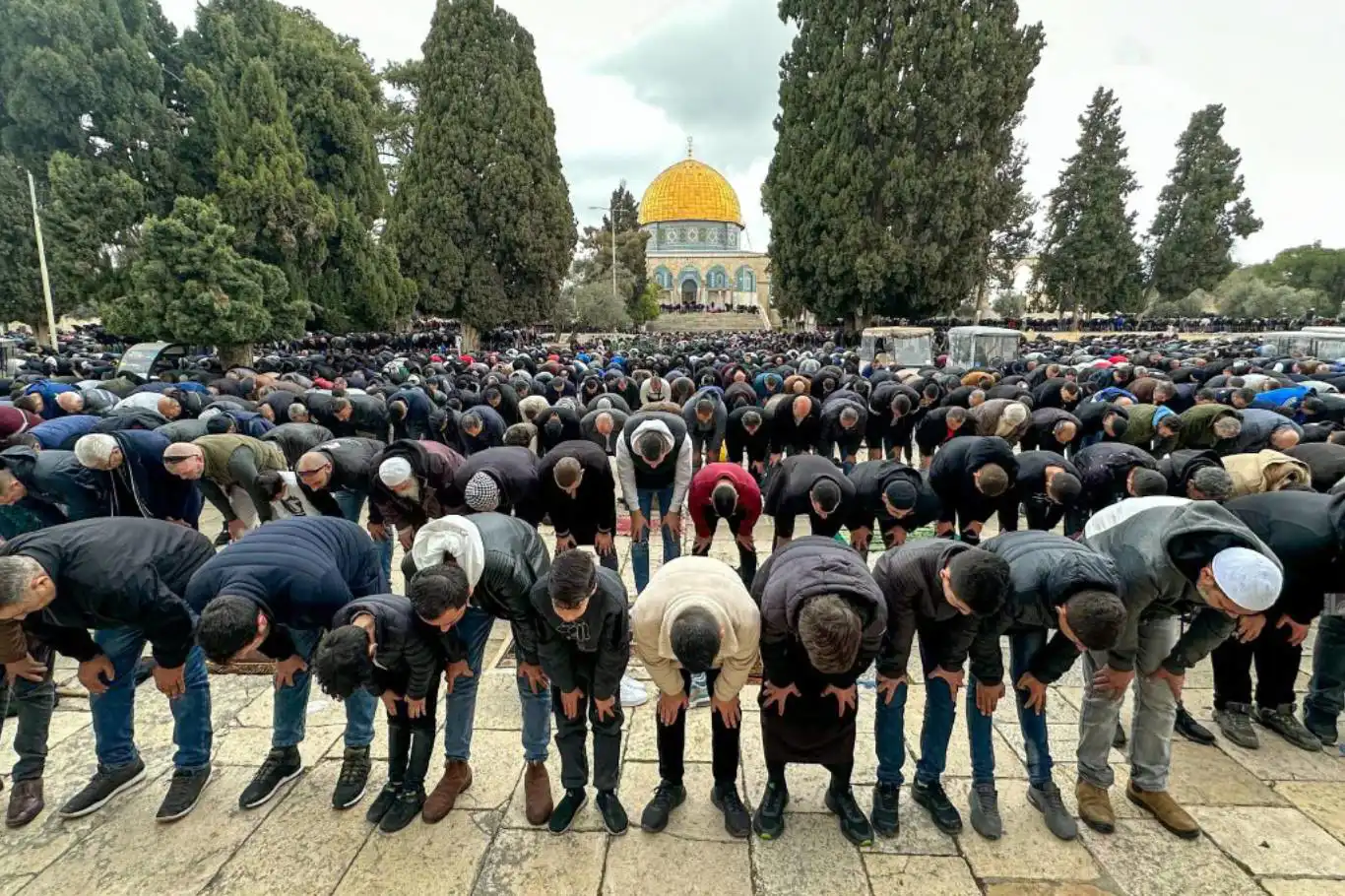Islamic Scholar Jawdat Saeed passes away at age of 91 in Istanbul
Syrian Islamic Scholar Jawdat Saeed has died in a hospital where he was being treated.

 Google News'te Doğruhaber'e abone olun.
Google News'te Doğruhaber'e abone olun. Said, who sought refuge in Turkey in 2012 after the Syrian civil war broke out, lost his life in Sultan Abdulhamid Han Training and Research Hospital on Sunday morning.
Ali al-Qaradaghi, the Secretary General of the International Union of Muslim Scholars, posted a condolence message over the death of Jawdat Saeed.
“Islamic scholar Jawdat Saeed passed away at dawn today. He was one of the prominent students of the Algerian scholar Malik bin Nabi. May Allah the Almighty have mercy on both of them,” al-Qaradaghi tweeted.
المفكر الأستاذ جودت سعيد رحل عن دنيانا فجر اليوم..كان من أعظم تلاميذ المفكر الجزائري مالك بن نبي رحمهما الله تعالى وكان من مؤسسي المقاومة المدنية كما كان وفياً لمبادئه مصراً على رفض الظلم والاكتفاء بالتشكي بل لابد من تحمل المسؤولية رحمه الله تعالى وغفر له وأسكنه فسيح جناته. pic.twitter.com/cEe3EAxML9
— د. علي القره داغي Dr. Ali Al Qaradaghi (@Ali_AlQaradaghi) January 30, 2022
In a message shared on his Twitter account, Mehmet Göktaş, Honorary President of the Prophet’s Lovers Foundation, offered his condolences to all Islamic world over the passing away of Islamic scholar Jawdat Saeed.
“Verily we belong to God and verily to him do we return. Islamic world has indeed lost one of its precious sons. May Allah the Almighty have mercy on him,” Göktaş said.
İnnalillah veinna ileyhi raciun. İslam Dünyası ciddi bir evladını kaybetmiştir. Cevdet Said bizim ezberĺerimizi bozan, düşünce dünyamızı zenginleştiren, alternatif yollar gösteren biriydi. Ümmetin başı sağolsun, Rabbim merhametiyle muamele buyursun
— Mehmet Göktaş (@goktasmehmet) January 30, 2022
Who was Jawdat Saeed?
Saeed was born on February 9, 1931, in the small Circassian village of Bir Ajam, in the rich farmlands of the Golan Heights of Syria. Saeed’s father, Muhammad, sent his son to study at a school in Quneitra. Upon completing his studies, Saeed traveled to Cairo and attended the prestigious Islamic seminary there, al-Azhar University. Cairo was the center of the Arab-Islamic renaissance of the late nineteenth and early twentieth centuries, when scholars such as Jamal al-Din al-Afghani, Muhammad Abduh, and Rashid Rida achieved international renown. The city remained a cultural and intellectual hotbed of new religious and sociopolitical ideas. In 1952, Saeed graduated from al-Azhar with a degree in Arabic studies and literature, as well as a diploma in education. It was the beginning of a long and accomplished intellectual life.
In 1950s Cairo, Saeed was introduced to the work of Malik Bin Nabi, an Algerian scholar educated in Paris. Bin Nabi settled in Cairo in 1954, when the Algerian armed resistance against French colonial rule began, returning to Algeria in 1962 after independence. He produced over two dozen books, including Les Conditions de la Renaissance and Le Problème des Idées dans le Monde Musulman , until his death in 1973.
“What Bin Nabi was saying was very different from what we used to hear from [Jamal al-Din] al-Afghani and Muhammad Abduh, and even [Sir Muhammad] Iqbal,” Saeed recalled in a 1998 interview. “It was such a jolt to me when he refrained from blaming the enemies, the colonizer, the imperialist, the crusader, the Zionist, the freemason, and all the other foes.”
Bin Nabi’s many writings tackled the subjects of culture, intellectual dynamism, and the means of development in Arab and Muslim society. He argued that modern Muslim backwardness must be understood in terms of ideas, not in terms of the acquisition of “objects” such as weapons and technologies, because social development should increasingly be understood through intellectual criteria. “The morbid adoration in the Muslim world for physical force has hindered its appreciation of knowledge and the power of ideas,” Bin Nabi argued, “that ideas are the real resource of the people.” He also criticized the Muslim tendency to resort to apologetics and to rely on past accomplishments of Islamic civilization rather than look to future goals and achievements. In addition to the ideas of Bin Nabi, Saeed also took great interest in the works of Sir Muhammad Iqbal.
Muhammad Iqbal was a Punjabi philosopher, Sufi mystic, and poet educated in England and Germany, who emphasized the need to spiritually and politically revitalize modern Islam, most notably in a book of collected lectures titled The Reconstruction of Islamic Thought. Saeed credited Iqbal with awakening Muslims to the idea that even though “the Qur’an and Islam emerged before the age of science, it was the Qur’an which heralded the age of science” and that the Qur’an demonstrates “the importance of the facts of the real world and human experience.” These insights from Iqbal led Saeed to embrace the idea that “the truth” is discernable by looking at the sort of human being that a doctrine, philosophy, or belief produces. He cites Iqbal’s teaching that “Allah’s sharia [i.e., law] is realized when justice is realized; whatever comes closer to justice is closer to Allah’s sharia.” This idea enabled Saeed to see beyond the restrictive parameters that were set in the past and reenvision Islam in the present. Muslims, according to Saeed, must be completely free to go beyond the “dogmatic mind.” The “dogmatic mind,” Saeed explains, “is the mind of a person who, when the objective circumstances call for a change in attitude, fails to make that change.”
When he returned to his native Syria, Saeed completed mandatory military service and worked as a teacher in the historic capital of Damascus. Although details are lacking, Saeed maintained an association with the Muslim Brotherhood (Ikhwan al-Muslimun) during this time, probably stemming from his time in Egypt — the birthplace of the Islamist movement — and his ideas earned him the ire of Syrian government authorities. The prominent Tunisian Islamist leader, Rachid Ghannouchi, encountered Saeed during those years in Damascus, later describing him as a very distinguished personality and an “active volcano.”
Saeed devotes great attention to the stories in the Qur’an about the prophets, such as Jesus and Moses. He notes that their mission to spread the call of Allah (dawa) and establish an Islamic way of life had two distinct stages. “Some were able to complete the two stages, such as Moses and Muhammad,” writes Saeed, “while others did not go further than the first stage, such as Christ.”
In 1972 Saeed published a new treatise titled Hatta Yughayyiru Ma Bi-Anfusihim (Until They Change What Is in Themselves), a title derived from a well-known verse in the Qur’an. The foreword to the book was written by the aforementioned scholar Malik Bin Nabi during a time when he resided in Tripoli, Lebanon. “Brother Jawdat Saeed knows, as a Muslim well versed in Islamic culture,” Bin Nabi wrote, “that change, throughout history, yields to the law of the self (al-nafs).” Saeed asserts that scholars and activists who have contemplated social issues, ills, and injustices, offering creative understandings and solutions, lack the underlying principle that lies at the heart of the matter, which is “the self.”
The 1973 Muslims-zionist regime war reclaimed a portion of the Golan Heights from Israeli occupation, and Saeed returned to Bir Ajam (which had been evacuated since the Six-Day War in 1967). He worked there as a farmer and wrote works of Islamic thought and philosophy, engaging the ideas of scholars such as Algerian intellectual Mohammed Arkoun and French Nietzschean Michel Foucault.
In his 1988 book Iqra wa Rabuk al-Akram (Read! And Your Lord Is Most Gracious), Saeed argued that scientific knowledge is essential to human progress and its neglect in the modern Muslim world is contrary to the Qur’anic message with its commands to “read!” and acquire knowledge throughout the earth.
It is noteworthy that Jawdat Saeed’s ideas have received attention in Islamist circles, and some of his views are evident in the writings of moderate Islamists such as the late Umar al-Tilmisani, the third supreme guide of the Muslim Brotherhood in Egypt. Tilmisani, who could possibly have warranted a chapter in this book himself, assumed leadership in the wake of the disastrous impact that violence had on Egyptian Islamist circles. He rejected violence, and encouraged civil and legal channels for protest against the Egyptian regime. (ILKHA)



















































